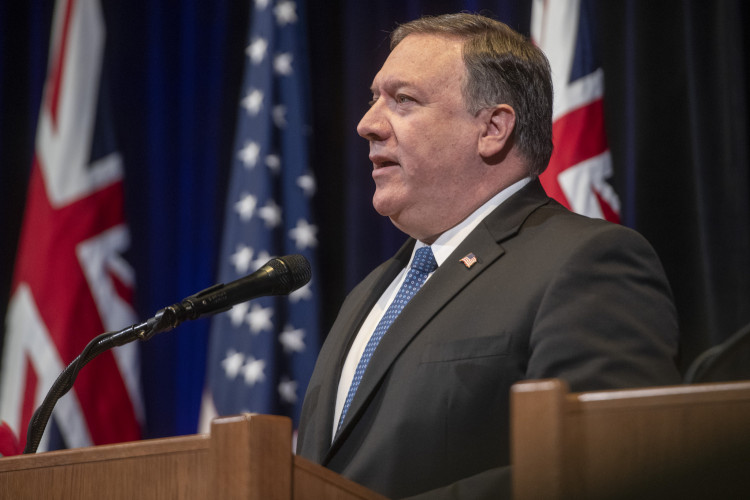U.S. Secretary of State Michael Pompeo announced the Trump Administration's Indo-Pacific strategy that involves billions of planned investments in the region. He made the presentation on July 31 before major U.S. business leaders and foreign dignitaries at the U.S. Chamber of Commerce.
Pompeo said the investment plans are ultimately aimed at promoting peace and prosperity among countries in the Indo-Pacific region. Initial global investments were worth $113 million. It included $25 million to support digital connectivity, $50 million for energy, and $30 million for infrastructure.
The secretary also announced future investments that will see $350 million compacts with Mongolia under the project called the Millennium Challenge Corporation. The budget is for enhancing the sustainable water supply for Mongolia's capital of Ulaanbaatar, he said.
Pompeo also confirmed support for the Better Utilization of Investments Leading to Development Act. The project will see as much as $60 billion worth of US private investment in strategic business locations overseas.
In his speech, the secretary underlined U.S.'s commitment to the principles of transparency and openness, something that critics gauged as an implicit attack to China's policies under its One Belt, One Road initiative.
"Today no country does more two-way trade in the Indo-Pacific than the United States. In Southeast Asia, the U.S. is the single largest source of cumulative foreign investment - larger than China, Japan, and the European Union," Pompeo said in his speech.
Trump Administration's Indo-Pacific strategy, however, pales in comparison to China's One Belt, One Road in both scale and scope according to Eswar Prasad, former head of the IMF China Division.
"It also highlights the distinction between China's approach of bold and grand government-led initiatives and the much more modest role of the U.S. government," Prasad told Reuters.
For Daniel Russel of the Asia Society Policy Institute, U.S.'s $113 million investment strikes as a bit underwhelming. Other analysts seemed to feel similarly saying that the U.S. strategy may not generate excitement among the Indo-Pacific communities.
Countries in the region have also been wary about President Donald Trump's "America First" policy, according to Reuters. The president withdrew from the Trans-Pacific Partnership or TPP. There had also been an ongoing U.S.-China Trade War, which many economists believed resulted from Trump's impulsive decision-making skills.
China launched the "One Belt, One Road" in 2013. The initiative aimed at providing an estimated $1 trillion worth of investments into infrastructure and connectivity across countries in Asia, Europe, and Africa. President Xi Jinping hoped that the initiative would drive demands for Chinese goods overseas. More importantly, the president hoped it would position China as one of the major business players within the international arena.






